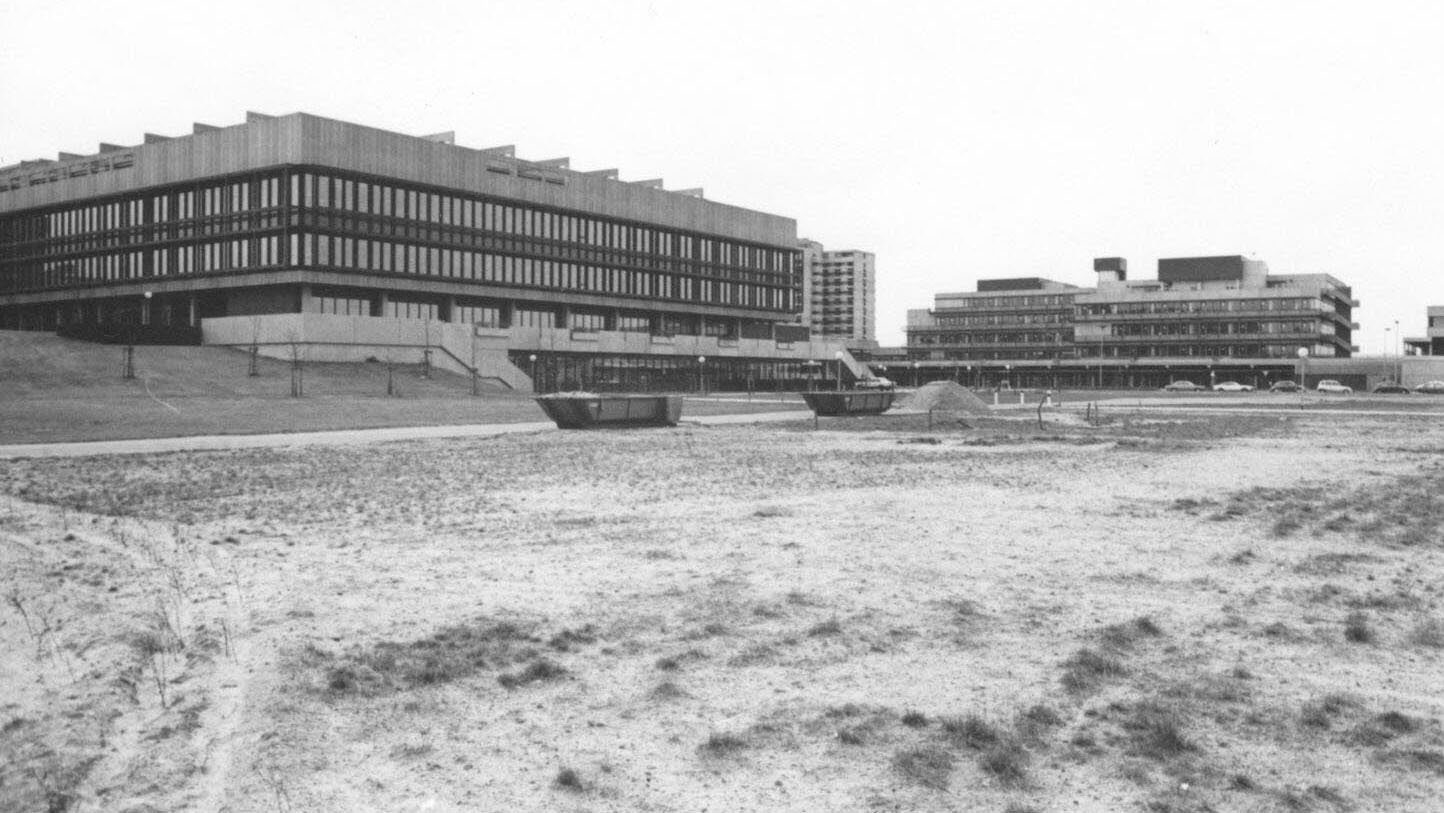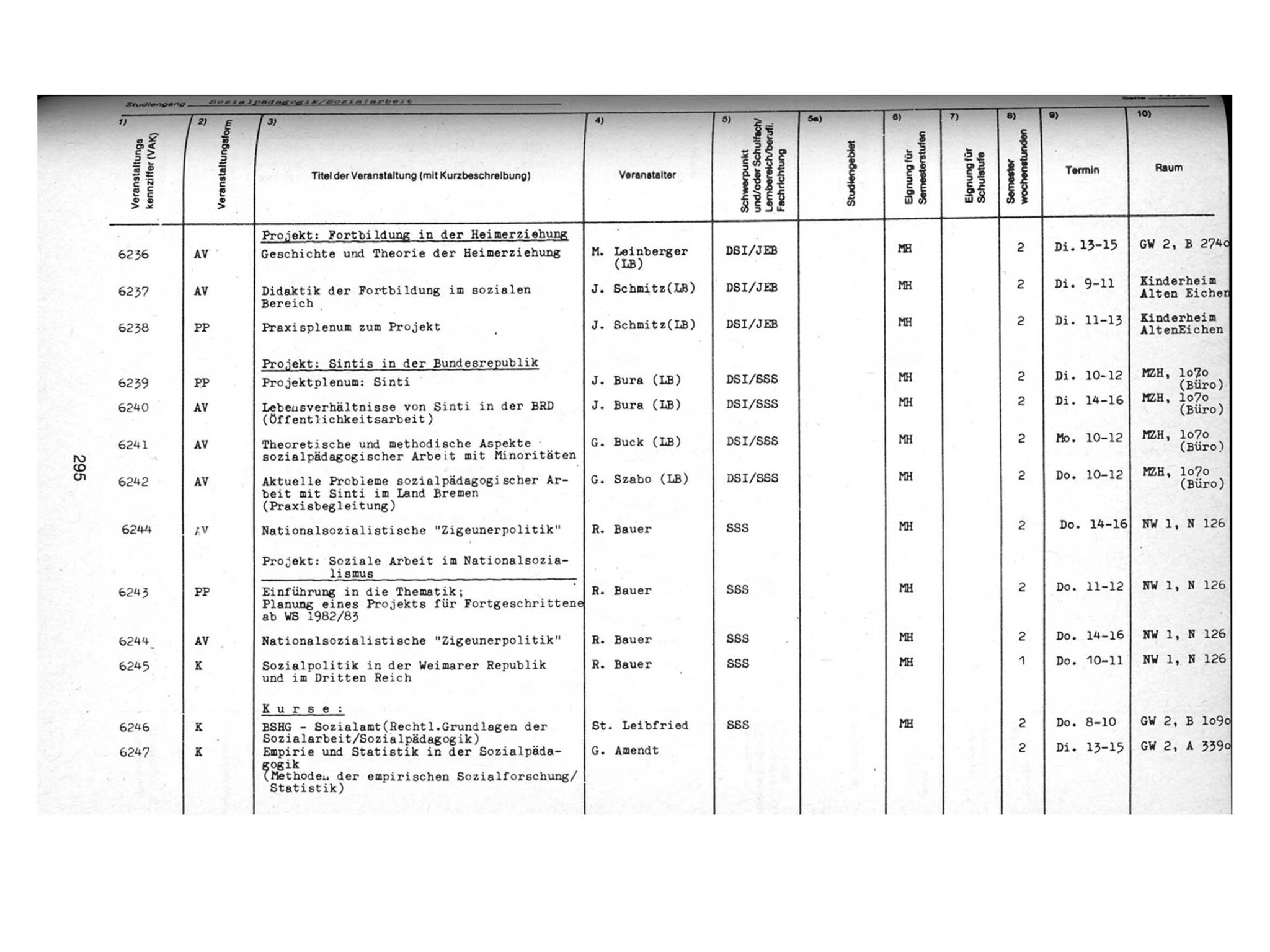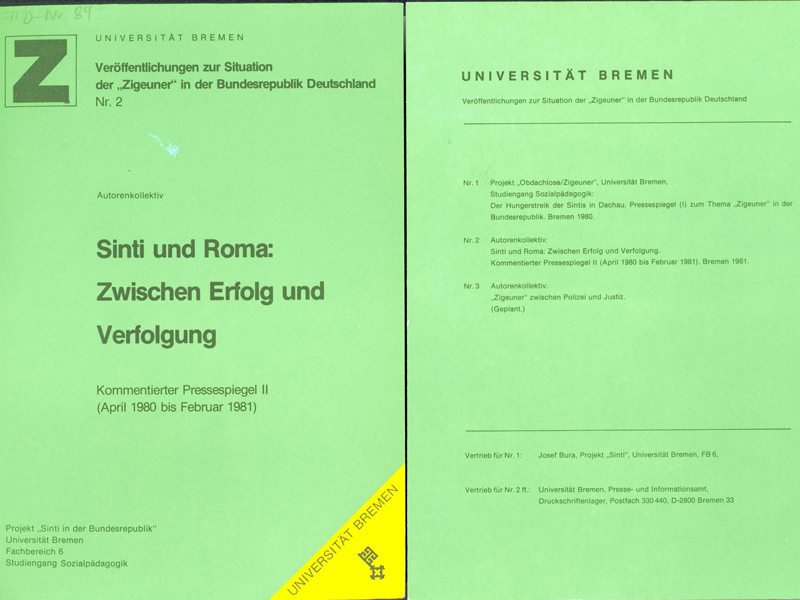
© Universität Bremen
Back Then: A Caravan Site for Sinti and Roma?
The Academic Senate was in unanimous agreement for it at the end of 1979 – but bureaucracy was against it: Why the Sinti and Roma caravan site was never created.
In November 1979, members of the Sinti and Roma community made inquiries to the President of Bremen Parliament for the creation of a caravan site in Bremen’s metropolitan area. The senate subsequently considered the development of caravan sites on the university campus. During a meeting on December 19, 1979, the Academic Senate (AS) unanimously voted for the requirement of such a site.
The AS demanded that the University Executive Board “realize the creation of such a site on the university campus as a temporary measure until Bremen Parliament has provided a final suitable location. (…) In light of the increase in right-wing tendencies and neo-Nazism, the Academic Senate view this as an activity that publicly stands against such tendencies.”
However, the implementation of the project was difficult. The university parking lot that was intended to become the caravan site was publicly owned. The area was therefore not open for use by the university as it wished. Alongside the stated legal challenges, the issue of how the site was to be supplied with electricity and sanitary facilities was also unclarified. The finances were also not certain: The university’s budget, or rather that of the Senator for Art and Science, held no funds that could be used for the creation of the site.
Academic Senate Turns to Mayor
That is why in February 1980, the Academic Senate wrote directly to Bremen’s Mayor at the time and asked that he solve this problem by creating a caravan park for Sinti and Roma in the city. There was in fact already a caravan site in Diepholz, yet the long journey there was unacceptable for the Sinti and Roma from Bremen. The necessity of there being such a caravan site and the improvement of the social and spatial situation for Sinti and Roma in Bremen was seen as an important step – especially as this community was persecuted under the Nazi regime and was a victim of genocide.

© Universität Bremen
At the same time, a scientific study at the university looked closely at the problems surrounding the social situation of Sinti and Roma in former West Germany and in Bremen State. The teaching and research project originally called “Living Conditions of Bremen’s Sinti – Status and Perspectives” (“Wohnverhältnisse Bremer Sinti - Bestandsaufnahme und Perspektiven”) was carried out between 1980 and 1984 within the (former) Faculty 6: Social Sciences under the direction of Professor Rudolf Bauer and with the help of Josef Bura and Györsy Szabo. The project had the aim of “determining the status of the living conditions of Bremen’s Sinti and finding ways of alleviating their living and existential problems based on the data collected, together with the affected, and under consideration of the ethnical characteristics of the Sinti.”
Study: Discrimination Continues in Federal Republic of Germany
Even though under Nazi regime many Sinti and Roma were persecuted, deported to concentration camps, and murdered, survivors and their descendants were faced with hardly any or no rectification in the Federal Republic of Germany. Their persecution was relativized, and their discrimination and criminalization in society remained.

© Universität Bremen
According to the project’s assessment, Sinti and Roma were seen as a basic regulatory problem that people believed to be solvable only by means of police registration. This often led to them being pushed towards the outskirts – to living blocks that often didn’t even meet the standards of social housing. The conscious settling on the periphery of towns also led to ostracism by the rest of society.
The aim of the Bremen study was thus to show the problems that Sinti faced in terms of the housing communities intended for them. Interviews with the affected were to provide approaches for solving these problems and insights into the relationship between the Sinti / Roma and the authorities were to be gained.
The study went well; however, the caravan site on campus was never developed, as the legal and organizational problems were not able to be solved. In 1982, the racially motivated persecution of Sinti and Roma in times of National Socialism was officially recognized as genocide.